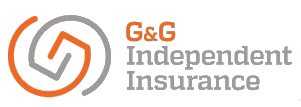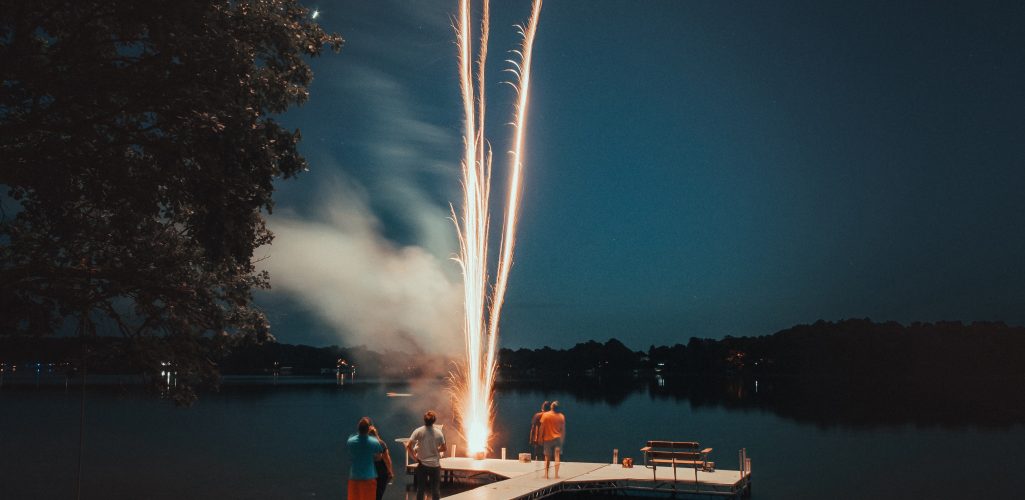As the summer sun shines bright, it’s time to gear up for one of the most celebrated holidays in the United States: the Fourth of July. This joyous occasion brings together family, friends, and communities to commemorate the country’s independence. While fireworks, barbecues, and outdoor activities are synonymous with this patriotic holiday, it’s essential to prioritize safety to ensure a memorable and accident-free celebration. In this blog, we will explore practical tips and guidelines to ensure your Fourth of July festivities are both enjoyable and safe.
Home Insurance And Fireworks
When it comes to home insurance policies, it’s important to understand how they may cover or exclude fireworks-related incidents. While policies can vary, here are some key points to consider regarding home insurance and fireworks:
- Review Your Policy: Take the time to thoroughly review your home insurance policy, paying attention to the sections on personal liability and property damage. This will help you understand what is covered and what is excluded in relation to fireworks.
- Liability Coverage: Home insurance policies typically provide liability coverage, which can protect you if someone is injured or their property is damaged due to fireworks on your property. However, it’s important to check if there are any specific exclusions or limitations related to fireworks-related incidents.
- Fire Damage Coverage: Home insurance policies generally cover fire damage caused by accidental or unforeseen events. However, intentional fire-setting or reckless use of fireworks may not be covered. It’s essential to understand the terms and conditions of your policy in this regard.
- Special Coverage: If you plan on having a significant fireworks display or regularly engage in fireworks-related activities, it’s worth discussing your intentions with your insurance provider. They may offer additional coverage options or suggest policy endorsements to adequately protect you.
- Exclusions and Restrictions: Some insurance policies may have specific exclusions or restrictions related to fireworks. This could include limitations on the types of fireworks allowed, the size of the display, or the use of professional pyrotechnics. Make sure you are aware of any such restrictions in your policy.
- Take Precautions: Regardless of insurance coverage, always prioritize safety when using fireworks. Follow local laws, safety guidelines, and manufacturer instructions. This reduces the risk of accidents, property damage, and potential liability claims.
To ensure you have appropriate coverage for fireworks-related incidents, consult with your insurance agent or provider. They can provide specific information about your policy and advise you on any additional coverage options that may be necessary.
Fireworks Safety
Fireworks are a dazzling spectacle that adds excitement and beauty to Fourth of July celebrations. However, it’s crucial to prioritize safety when handling fireworks to prevent accidents and injuries. Here are some key points to consider for firework safety:
- Legalities: Familiarize yourself with the laws and regulations regarding fireworks in your area. Follow the guidelines and restrictions to ensure you are using fireworks that are permitted and legal.
- Adult Supervision: Fireworks should only be handled by responsible adults who understand the risks involved. Never allow children to handle or ignite fireworks, including sparklers, as they can cause serious burns.
- Safe Location: Choose an open, clear area away from buildings, trees, and dry grass for your fireworks display. This will help minimize the risk of fires spreading. Maintain a safe distance from spectators, ensuring they are outside the danger zone.
- Protective Gear: Wear safety glasses to protect your eyes from debris and sparks while lighting fireworks. Additionally, consider using earplugs to reduce the risk of hearing damage, particularly for individuals with sensitive hearing.
- One at a Time: Light fireworks one at a time, following the instructions provided. Move away quickly after lighting the fuse to a safe distance. Avoid relighting malfunctioning fireworks or attempting to handle or fix them.
- Fire Extinguishing Methods: Keep a bucket of water, a garden hose, or a fire extinguisher nearby in case of emergencies. This will enable you to quickly extinguish any small fires that may occur.
- Proper Disposal: Once the fireworks have completely burned out, soak them in water before disposing of them in a non-flammable container. This will prevent accidental fires from discarded fireworks.
By adhering to these firework safety tips, you can enjoy a dazzling and memorable fireworks display while minimizing the risk of accidents and injuries. Remember, safety should always be the top priority during Fourth of July celebrations.
Grilling and Food Safety
Grilling and outdoor cooking are beloved activities during Fourth of July celebrations and other gatherings. However, it’s crucial to prioritize safety to prevent accidents and ensure a pleasant experience for everyone involved. Here are some important considerations for grill and outdoor cooking safety:
- Grill Placement: Set up your grill in a safe location outdoors, away from flammable materials such as buildings, trees, or overhanging branches. Ensure the grill is placed on a stable surface to prevent tipping.
- Proper Ventilation: Ensure that your grill has proper ventilation and is placed in an open area. Grilling in enclosed spaces, such as garages or tents, can lead to the accumulation of dangerous carbon monoxide fumes.
- Supervision: Never leave a lit grill unattended, especially when there are children or pets present. Assign a responsible adult to monitor the grill at all times and keep a close eye on the cooking process.
- Safe Lighting: Follow the manufacturer’s instructions when lighting your grill. Use long-handled tools specifically designed for lighting grills and avoid using flammable liquids to ignite the charcoal or gas.
- Food Safety: Practice proper food handling and preparation techniques to prevent foodborne illnesses. Keep raw and cooked foods separate and use separate utensils and cutting boards. Cook meats to the appropriate internal temperatures and avoid cross-contamination.
- Fire Safety: Keep a fire extinguisher or a bucket of water nearby in case of flare-ups or accidents. Ensure that you know how to operate a fire extinguisher properly.
- Cookie Safety: If baking or grilling cookies outdoors, be mindful of the hot surfaces and the potential for burns. Use appropriate protective gloves or oven mitts when handling hot cookie sheets or grilling trays.
- Clean and Maintain: Regularly clean your grill to prevent the buildup of grease and other flammable materials. Remove excess food residue to avoid flare-ups and potential fire hazards.
By following these grill and outdoor cooking safety tips, you can enjoy delicious meals and treats while minimizing the risk of accidents and injuries. Remember to prioritize safety, be vigilant, and ensure a memorable and safe Fourth of July celebration for all.
Have a fun and safe Fourth of July!
The Fourth of July is a time for celebration and reflection, but it’s crucial to prioritize safety and responsible behavior. By following these practical tips for firework safety, grill and food safety, and water and sun safety, you can ensure a memorable and accident-free holiday for you, your family, and your friends. Celebrate responsibly, be mindful of others, and enjoy the festivities while keeping safety at the forefront. Happy Fourth of July!
Call G&G today to ensure your home is covered and your family has a fun and safe holiday!


